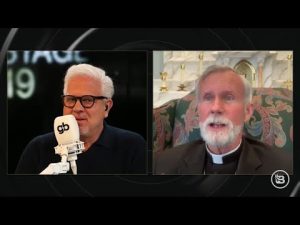In a lively debate on immigration policy, an important discussion emerged about the complexities surrounding illegal immigration and asylum in the United States. The conversation, taking place at Kansas State University, spotlighted a range of perspectives, especially the responsibility the U.S. has to its citizens versus that of foreign nationals seeking refuge. The interplay of legalities, social narratives, and personal experiences painted a vivid picture of the pressing immigration issues faced today.
At the heart of the discussion was the notion of legal immigration versus illegal entry. The speaker emphasized the point that entering the U.S. without following proper legal channels is, by definition, a crime. Drawing on his family’s history of legal immigration, he illustrated the importance of respecting America’s immigration laws and argued that those who break these laws should face consequences. This perspective was countered by a student who articulated the struggles of immigrants navigating a complex system, often fleeing dire circumstances in their home countries. She asked whether it was fair to label all undocumented migrants as criminals, raising a crucial question about the surrounding stereotypes and generalizations.
As the debate unfolded, the idea of America as a land of opportunity for those in need was brought into focus. The speaker maintained that while empathy for immigrants is important, the primary obligation of American policy should be toward its own citizens. The discussion raised eyebrows when it was mentioned that recent immigration statistics revealed significant numbers of individuals arriving from various countries, including over five percent of Haiti’s population. This raised questions not only about the resources dedicated to immigration but the implications on American society and the economy.
Another aspect of the conversation tackled was the perception of immigrants as harbingers of crime and disruption. The speaker notably pointed out the connection between illegal immigration and criminal activities, backed by statistics that alarmed many in the audience. Yet, his emphasis on the negative implications of illegal immigration was met with a spirited rebuttal. The student questioned whether it’s fair to paint all undocumented individuals with a broad brush, highlighting the perseverance and hard work many exhibit in pursuit of a better life for themselves and their families.
The conversation took an introspective turn when discussing American identity and values. In questioning whether diversity and inclusion are fundamental American ideals, the speaker looked at the historical context of immigration in the U.S. while pointing out the socio-economic struggles the current generation faces. He expressed that, despite the passion for helping others, America’s policies should prioritize the well-being of its citizens first. Amidst this, the roles of empathy and understanding in shaping immigration policy were highlighted, suggesting that an effective balance between compassion for those in need and ensuring the safety and prosperity of American citizens is necessary.
As the debate wound down, it became clear that immigration is a topic filled with intricacies. While the laws are black and white, the human experiences behind each story are anything but. The dialogue illustrated the need for a nuanced approach to immigration policy — one that honors the nation’s foundational values while adapting to the realities of a changing world. Ultimately, what remains essential is the understanding that immigration is not merely a legal matter; it’s a reflection of the collective values that shape our society in all its diverse complexity.







